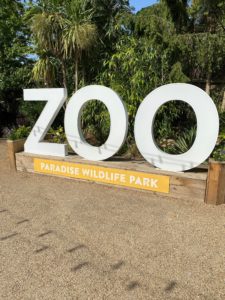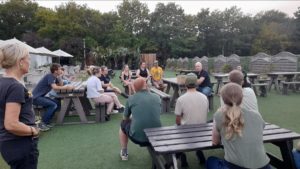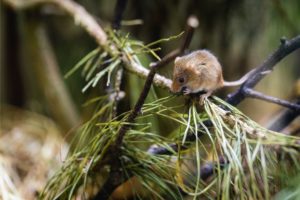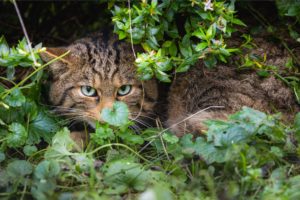Staff share ideas with other zoo professionals at the Native Species Workshop
Earlier this month, conservation officer Jack, along with some of our zookeepers attended the British & Irish Association of Zoos and Aquaria (BIAZA) Native Species Workshop, held by Paradise Wildlife Park in Hertfordshire.
BIAZA is the professional body representing the best zoos and aquariums across the UK and Ireland – of which we are proud to be members. The association has many focus led and practical working groups, specialising in subjects from captive animal management, education and equality, to veterinary medicine, zoo research, and conservation. These groups allow zoo staff to share ideas and progress to modern zoo standards. Only the best for our animals!

The BIAZA conference was held at Paradise Wildlife Park
The Native Species Working Group assists in connecting BIAZA collections that work with native species, these are species that naturally exist in our native countries. Each year the group hold a workshop to share experiences of native conservation initiatives.
[Pullout] “It was really great to meet up with other conservation officers, animal keepers and ecologists to discuss some incredible projects happening all over the UK. A lot of people might think that zoos do all their conservation work abroad, however it is very important for us to preserve what we have in this country just as much as the larger exotic animals.” – Conservation Officer Jack Gradidge [/Pullout]

Many zoo industry attendees came together for the conference
[Pullout] “On the first day of the workshop we heard from a number of organisations and collections about the importance of monitoring and recording wildlife, as well as some incredible reintroduction projects such as Fota Wildlife Park’s natterjack toad project and Royal Zoological Society of Scotland’s pine hoverfly breed and release programme. The first evening was spent looking for the nests of wild harvest mice and using bat detectors to identify bat species living at the zoo grounds.” [/Pullout]

A native harvest mouse at the Folly Wildcat Story exhibit
[Pullout] Jack continued “The second day focussed on the importance of communicating our projects to our guests effectively to make a positive change. Bristol Zoological Societies’ white-clawed crayfish project was an exceptional example, integrating their local school and community to help protect our native crayfish from the introduced North American signal crayfish, and the disease they carry. Overall, it was wonderful to connect with other conservationists so passionate about alleviating some of the pressures that our native wildlife is currently under. I am left feeling very enthused and hope that we can implement more projects to help our native wildlife in the near future.” [/Pullout]
Remember to visit our very own native species habitat during your next visit to us – the Welsh Wildcat Story (you may spot some adorable harvest mice too)!

Meet Carradog and Myrddin at the Welsh Wildcat native species zoo exhibit